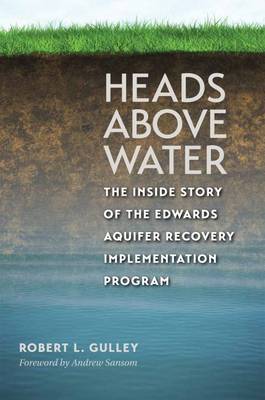Conservation Leadership
1 total work
Since the 1950s, competing interests for use of Edwards Aquifer resources—the primary source of water for more than two million people in south central Texas—were at war. They had tried many times to resolve their differences about how to conserve, allocate, and use the water, but had always failed.
Finally, under the patient leadership of Robert Gulley, thirty-nine diverse stakeholders reached a consensus on the use of the Edwards Aquifer that balanced the needs of south central Texas for water with the needs of eight species protected by the Endangered Species Act, culminating a half century of rancor and legal wrangling.
In this book, Gulley tells the inside story of the Edwards Aquifer Recovery Implementation Program (EARIP), a federally sponsored process put in place by the Texas legislature.
How such a large and fractious group came together to resolve one of the nation’s most intractable and longstanding water problems serves as a case study in consensus building. That consensus brought certainty to the region regarding the use of the aquifer while creating an unlikely but lasting partnership for conservation.
Finally, under the patient leadership of Robert Gulley, thirty-nine diverse stakeholders reached a consensus on the use of the Edwards Aquifer that balanced the needs of south central Texas for water with the needs of eight species protected by the Endangered Species Act, culminating a half century of rancor and legal wrangling.
In this book, Gulley tells the inside story of the Edwards Aquifer Recovery Implementation Program (EARIP), a federally sponsored process put in place by the Texas legislature.
How such a large and fractious group came together to resolve one of the nation’s most intractable and longstanding water problems serves as a case study in consensus building. That consensus brought certainty to the region regarding the use of the aquifer while creating an unlikely but lasting partnership for conservation.
